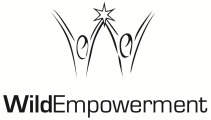A happy, ‘successful’ life is created through nurturing strong relationships with colleagues, friends and family. In reality, that’s not always easy, but DISC can help.
I see too many people getting stressed about unnecessary stuff because of misunderstanding others’ behaviour. My specialist DISC profiling techniques help you to understand why people do what they do; both others and yourself when you have an ‘off’ day.
DISC highlights where your similarities and differences are, helping you to see what makes others tick. That crucial insight improves and strengthens relationships, allowing you to work better together as a team.
Equally, when you know what your profile is, you become aware of when your buttons are being pressed. Once you recognise that, you’ll learn how to prevent it from happening again. Just as an attendee of one of my DISC workshops told me later. He and his fiancé went through a patch where they weren’t recognising one another’s needs. He would arrive home from work exhausted, needing some peace. However, she needed to offload about her day as soon as he walked in. Once he realised their differences, they DISCussed it and agreed that she could have all his attention after he’d decompressed for 30 minutes. They are now happily married.
Other profiling tools also help us to operate effectively as a group of humans. The reason I love DISC, though, is because its concept is far simpler. Its simplicity, combined with my own technique developed over 15 years, allows you to put your learnings quickly and easily into practise to benefit from them sooner.
Depth and Range of Applications
Originally developed in the 1920s by Dr William Marston, a psychologist, he created DISC to observe and notice what actions humans do in certain situations. Marston’s findings are now corroborated by MRI scans and sophisticated neuroscience knowledge. In fact, many studies have validated DISC’s concepts, recognising it as a more reliable behavioural indicator than other tools.
Put simply, DISC helps us to understand other humans. When you wonder why on earth someone did something, looking at it through a DISC lens makes sense of their actions. They’ve walked in alignment with their profile. You might not like what they did, and it doesn’t give them an excuse to behave in that way, but at least DISC explained their behaviour.
Explaining Behaviours Without Condoning Them
Some might say that others should put up with their actions because that’s their profile. Instead, by separating our natural behaviour from learned behaviour, we soon notice that we get better results from the latter.
When we create social rules about how to engage appropriately together, those rules then take precedence over our natural instincts. If our natural instincts are aligned with those rules, we can be ourselves and more relaxed. But if we feel outside of our natural habitat and have to behave in a manner that doesn’t align with our normal state, we have to overrule our instincts.
When you’re aware that interactions feel like hard work, acknowledge that you’re having to bite your tongue. Yes, it takes effort. It’s also appropriate behaviour in that setting. Recognising this makes it easier to deal with, especially knowing that you can be yourself again when you’re in your own environment.
This acknowledgement allows you to understand whether you’re adapting versus behaving naturally, and how much you’re prepared to adapt. You may DISCover that you’ll never feel happy in that situation and decide to find an alternative place where you can feel more yourself.
Putting Your New Insight Into Practise
Like any of these psychometric testing tools, you’re interested in the results, but the report ends up yellowing in a drawer.
The real value is in delving further into what the insight means and how to put it into practise. Many people benefit from having their DISC profile done by me, using my specialist techniques, followed up with a review of the report to answer your ‘so what’ questions. This gives you a deeper understanding of yourself and knowledge of what to do.
In businesses, I use DISC on individuals for them to be more self-aware and to improve their performance. In groups, we profile everyone so that not only do they understand their own profile, but they’ll appreciate and value the strengths and challenges of everyone in the team. That way, they can work more effectively together and be more understanding when someone may seem difficult occasionally.
Example 1: Two board members came to me for help. One was big-picture thinking, strategic, and wanting things done now. The other was more detail-focused, wanting things done right. DISC profiling allowed them to understand both sides. The one who wants instant results knows to pause and consider the options, and the perfectionist knows he has to lower his standards. They worked out a code language to warn one another when tensions rose because their traits were becoming more dominant.
Example 2: A board of directors had their profiles done because one member was more dominant and fast-paced than other more laid-back members. Recognising that they needed the energy of the more dominant director to ensure that things got done, the profiling results helped them to see where they complement one another and how to work more effectively together.
Similarities: Tensions can also arise when people have supposed similarities. Two people being perfectionists are fine as long as they’re on the same page of their rule book. If their opinions of the best way forward are different, those tensions need resolving.
Me versus We: DISC will highlight differences between outgoing and reserved people. The outgoing Me person tends to thrive on attention and acknowledgement, telling everyone what they think. Whereas you have to tease out opinions of the reserved We individual, who is generally more collaborative and a natural negotiator. These two types usually drive one another nuts – they’re like Tigger and Eeyore!
Fear: If fear is dominant, anything that threatens your success is likely to get an emotional reaction. The natural leader fears failure: “Don’t bring me problems, bring me solutions.” Whereas the natural negotiator needs to be everyone’s best friend, not the bearer of bad news, fearing rejection. The collaborator, with their steady approach, fears change or surprises.
DISC Boosts Your Marketing, Recruitment and Career Progression
Its numerous business benefits include:
- DISCovers the right person profile when recruiting for your team.
- Pinpoints the ideal customer profile for more targeted marketing language.
- Aids managers who want to progress up to the senior board.
- Highlights your leadership and management style – this can be empowering and freeing if you’ve always doubted your leadership abilities.






